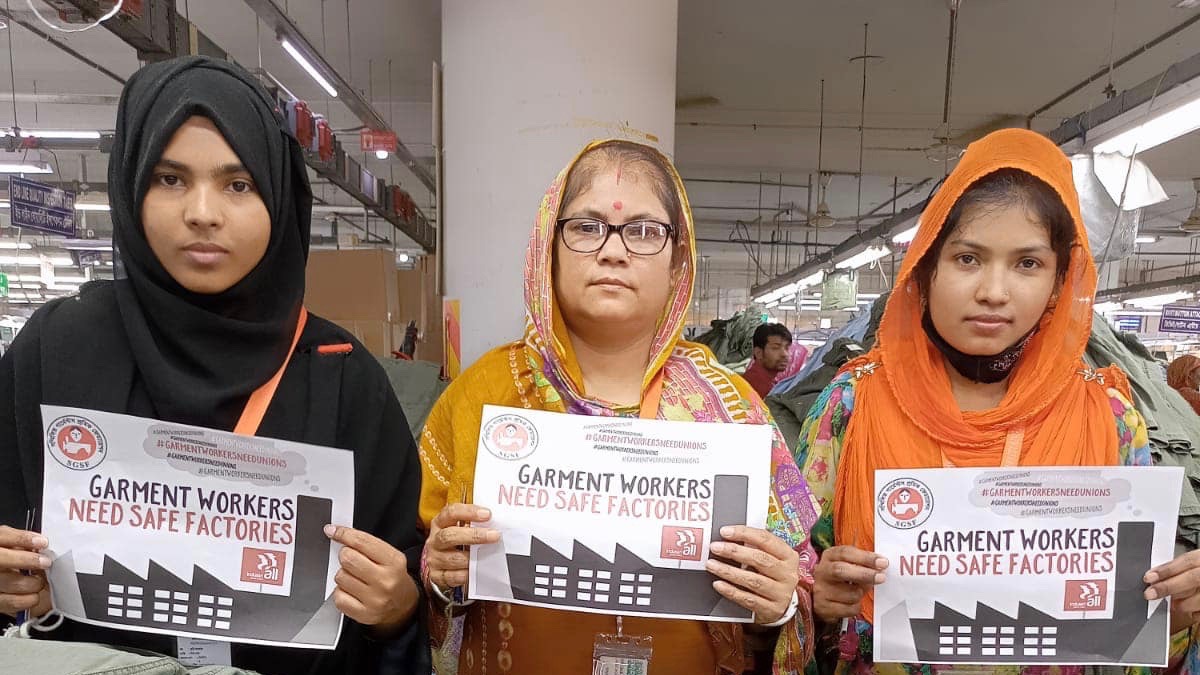Bangladesh has been ranked the worst country for workers in the 2023 Global Rights Index released by the International Trade Union Confederation (ITUC) which documents violations of internationally recognized labor rights. The tenth edition of the index was based on responses from 331 unions across 153 countries. The 64-page report concluded that the 10 worst countries for workers are: Bangladesh, Belarus, Ecuador, Egypt, Eswatini, Guatemala, Myanmar, Tunisia, the Philippines, and Turkey. ITUC represents 200 million workers in 168 countries and has 338 national affiliates.
The 2023 Global Rights Index noted that workers’ rights have consistently deteriorated in the Asia Pacific region over the last 10 years with governments passing various laws that undermine workers’ interests. Citing the example of India, the report says, “The Indian government’s new labor laws consolidate 44 labor laws into four codes. The new labor codes, which cover wage regulation, industrial relations, social security, occupational safety and health and working conditions, would deprive workers of their basic rights to go on strike, to form unions and to bargain with management.” In the case of Bangladesh, maternity benefits have been reduced under the amended labor law.
The report also highlights violence, repression, and arbitrary arrests of workers in countries like Bangladesh, India, and Pakistan, along with restrictions on the right to form trade unions. It notes that “Workers are under pressure as prices spiral and wages stagnate. Private companies disproportionately inflate prices, using global shocks as a smokescreen to obscure their greed for profits.” When workers unite in collective actions to call for higher wages and fairer redistribution of profits, they are often suppressed by authorities.
For example, in India, around 70 workers of Viraj Steel were arbitrarily arrested, including the general secretary of the union, after the management filed a complaint with the police in order to suppress union activity in the factory. The management of another company in India, SLAM Clothing, illegally locked out workers and eventually closed the factory following the union demand for the payment of outstanding wages.
The situation in Sri Lanka—which witnessed massive protests last year due to the ongoing economic crisis—is no different, with some unions being arbitrarily dissolved. “Arbitrary arrests and violent attacks remain a constant threat for trade unionists and workers in Myanmar” as well, the report states.
Workers are vulnerable globally due to the rising cost of living and authoritarian tactics to crack down on their right to collectively negotiate wages and undertake strike actions to oppose unfair practices.





